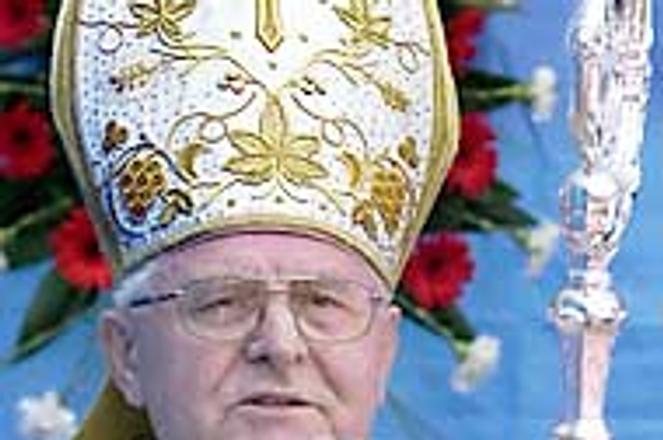SOKOL knows the way.photo: TASR
A TOP CHURCH official shocked politicians and his fellow bishops by telling the nation two weeks ahead of general elections which parties "good Slovak Catholics" should not vote for.
Archbishop Ján Sokol gave his election advice in a circular that was distributed along with a traditional 'shepherds' letter' - this time an appeal from bishops to their flocks to encourage participation in the elections.
In his personal circular, which was distributed in churches in his Bratislava and Trnava regions diocese, the clergyman said good Christians should not vote for "liberals, former communists and atheists".
Although mentioning no names, Sokol was seen as having suggested voters not support two non-parliamentary parties - Robert Fico's Smer and Pavol Rusko's New Citizen's Alliance (Ano).
Smer has recently topped the polls ahead of September 20-21 elections, while Rusko's Ano is given a strong chance of entering parliament.
"We, your shepherds, will not vote for that party and its leaders who show us bare bottoms on their election billboards," reads the circular, in a naked reference to one of Smer's election posters.
The Smer billboard communicates the message that Slovakia should enter the European Union as a proud and equal partner rather than as a poor nation, and features an apparent family of four with naked bottoms to the camera.
"We will also not vote for a party whose leader, through his television station, is corrupting the morals of our nation, and its most precious group - the youth," the message continued, apparently referring to Rusko's TV Markíza, the most popular Slovak private TV channel, and its documented abuse of news airtime to promote Ano.
Smer and Ano, as well as the country's left-wing parties, attacked Sokol for what they regarded as his meddling in affairs of state.
"He has grossly abused the position of the church in Slovakia, and is trying to influence voters through the sensitive issue of faith," said Ľubomír Lintner, Ano's deputy chairman.
However, the country's Christian-oriented parties, such as the ruling coalition Christian Democratic Party (KDH) and PM Mikuláš Dzurinda's governmental Slovak Democratic and Christian Union (SDKÚ), said they thought that Sokol had a right to provide guidance to the community.
In the 2001 national census, over 80 per cent of Slovaks declared they followed the Christian faith.
František Tondra, head of the Conference of Slovak Bishops, distanced himself from what he said was "Sokol's personal initiative".
Although the circular used the plural "we, your shepherds", Tondra said Sokol had never consulted his message with his four fellow bishops, as he had with the shepherds' letter, which was read out at masses around the country on September 8.
"The archbishop signed the circular alone. I definitely would not put my signature under it, and I don't agree with this initiative," Tondra said.
Tibor Hajdu, Sokol's secretary, told The Slovak Spectator that Sokol would not comment on the reactions caused by his circular.
Hajdu said that a total of 10,000 had been distributed.
As the church in Slovakia is funded from the state budget, some politicians also said that Sokol's initiative should reopen debate on cutting financial ties between the state and Church.
In 2001 the Church received Sk587 million ($13 million) in public money, the majority of which went to the Christian community, according to data from the Culture Ministry, which oversees religious bodies in Slovakia.
Peter Weiss, head of the leftist Social Democratic Alternative (SDA) party, said that Sokol "through his expressions of opinion shows disrespect to the constitutional premise that Slovakia is not bound to any ideology or religion".
"Sokol's attitude is incomprehensible for many people in the Church," agreed a well-known Slovak priest, Ján Suchán.
"I don't want to divide the Church into conservatives and liberals, but it seems that some people are making this division themselves. These people fear a freer world."


